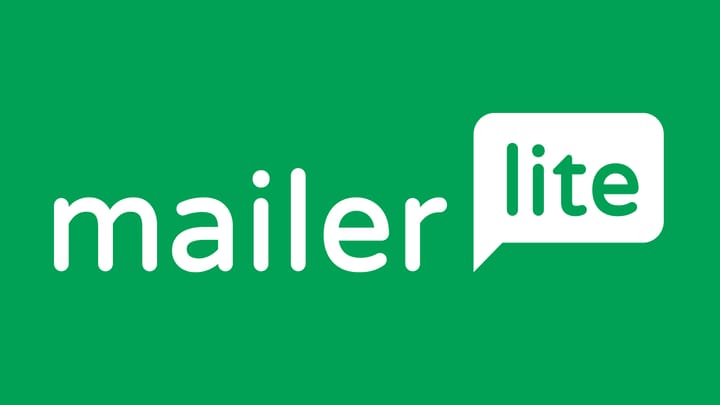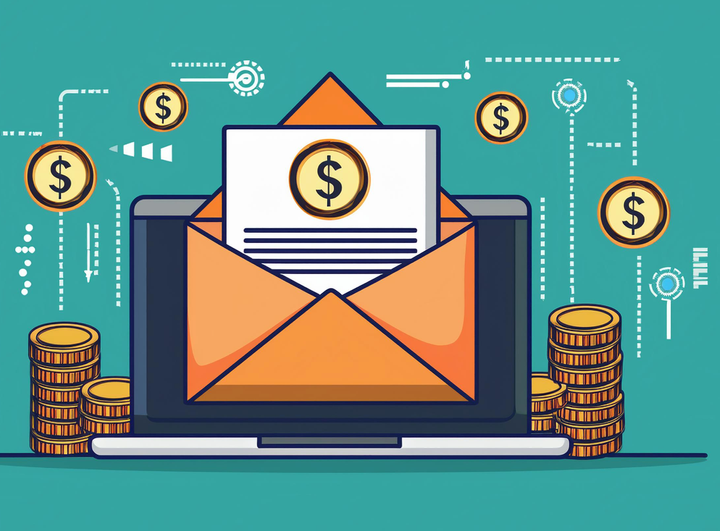Top 20 Free Email Marketing Services for 2025
With shifting search algorithms and the unpredictability of social media reach, one thing has become clear: businesses need direct control over how they connect with their customers.

With shifting search algorithms and the unpredictability of social media reach, one thing has become clear: businesses need direct control over how they connect with their customers.
Email marketing remains a cornerstone of communication—a proven, dependable way to build and maintain relationships. From solo entrepreneurs to large enterprises managing extensive mailing lists, email marketing continues to deliver results.
Whether you’re sharing quick updates or running advanced automated campaigns, the right email marketing tool can make your life significantly easier. But with so many options out there, finding the perfect platform—especially on a limited budget—can feel overwhelming and costly.
Choosing a professional email marketing service that is both free and powerful can significantly impact businesses focused on growth. Good thing, many platforms offer solid free plans packed with essential features to elevate your email campaigns.
From managing unsubscribes to bypassing spam filters, these tools help you deliver targeted, polished communication without dipping into your budget.
What is an email newsletter?
An email newsletter is a way for brands to connect with their audience by sending bulk emails that deliver valuable content straight to subscribers' inboxes.
These emails often include updates, promotions, product launches, blog highlights, or curated content tailored to the interests of their audience.
As email newsletters have grown in popularity, they’ve evolved beyond simple updates to include broader marketing capabilities. Today’s platforms often integrate features like marketing automation, SMS campaigns, and social media strategies, making email newsletters a central tool in modern marketing efforts.
To meet these expanded needs, many email newsletter platforms now offer advanced tools, such as automation workflows, A/B testing, and transactional email capabilities.
Even with these added features, the focus remains on helping users create visually appealing newsletters, grow their subscriber base, and track performance metrics effectively.
These tools not only make email marketing more efficient but also provide businesses with the flexibility to scale and refine their overall marketing strategies.
What Is an Email Service Provider?
An email service provider (ESP) is a platform that facilitates digital communication via email, catering to both personal and professional needs. ESPs generally fall into two categories: general email providers and email marketing service providers.
- General Email Providers: Platforms like Gmail and Yahoo! Mail are designed for everyday users, offering free, straightforward tools for basic email communication. Their primary focus is on ease of use and reliability.
- Email Marketing Service Providers: These are tailored for businesses that need advanced features like custom domains, marketing automation, and performance analytics. These tools enable businesses to engage with their audience more effectively, streamline campaigns, and support growth efforts.
ESPs can also differ based on how emails are accessed:
- Webmail Platforms: These are fully online and can be accessed from any device with an internet connection, requiring no additional software. Examples include Gmail and Outlook.com.
- Email Clients: Programs like Microsoft Outlook or Apple Mail need to be installed on a user’s device, offering more robust email management capabilities, such as offline access and advanced workflow tools.

What to Look for in an Email Marketing Tool
Choosing the right email marketing tool is essential for the success of your campaigns.
The ideal platform will depend on your goals, budget, and the complexity of your needs. Here are the key factors to consider when selecting an email marketing tool:
- Ease of Use: Look for software with an intuitive interface that’s simple to navigate. A user-friendly platform lets you focus on crafting effective campaigns instead of wrestling with technical issues.
- Cost: Assess both upfront costs and long-term pricing. Choose a platform with scalable plans that align with your current budget and anticipated growth, especially if your subscriber list expands.
- Scalability: Ensure the tool can grow with your business. Outgrowing your email platform can lead to unnecessary disruptions and additional costs.
- Integrations: Opt for a platform that seamlessly integrates with essential tools like CRMs, eCommerce systems, or social media platforms. This helps create a cohesive and efficient marketing ecosystem.
- Segmentation Features: Advanced segmentation options let you organize your audience by demographics, behavior, or sales funnel stage, enabling targeted and effective messaging.
- Personalization and Automation: Features like personalized messages and automated workflows can boost engagement and save time. Triggered emails based on user actions add a strategic edge to your campaigns.
- Analytics and Reporting: Access to performance metrics such as open rates and click-through rates is crucial for measuring success and improving your strategies over time.
- Deliverability: Choose a provider known for high deliverability rates to ensure your emails land in inboxes, not spam folders.
- Templates and Design: A variety of professional, mobile-responsive templates can help you create visually appealing and effective emails for any device.
- Customer Support and Community: Reliable support and a strong user community provide valuable resources for troubleshooting and mastering advanced features.
20 Free Email Marketing Software to Use in 2025
Businesses looking to optimize their marketing or communication efforts without upfront costs can significantly benefit from finding the right email service provider with a free plan.
Below is a curated list of 20 platforms, each offering unique features and flexibility to suit different needs:
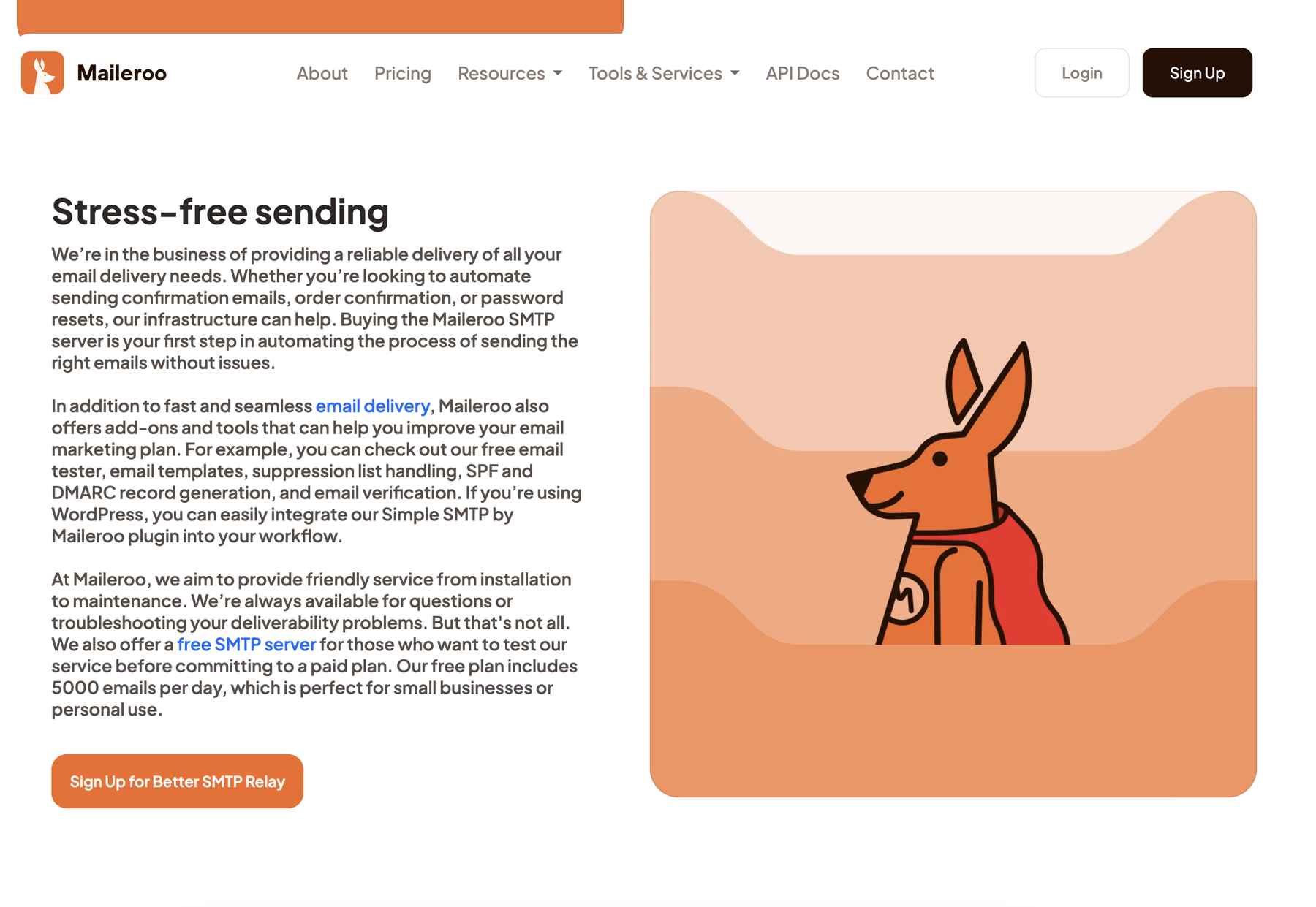
1. Maileroo
Maileroo is a solid platform for transactional emails, offering reliable performance and easy scalability. It’s equipped with features such as automation, detailed analytics, and flexible pricing.
The free plan includes up to 5,000 emails per month, making it perfect for startups and small businesses looking for a dependable solution to manage their email communications.
With its user-friendly interface, Maileroo simplifies sending order confirmations, password resets, and promotional updates, ensuring timely and accurate email delivery.
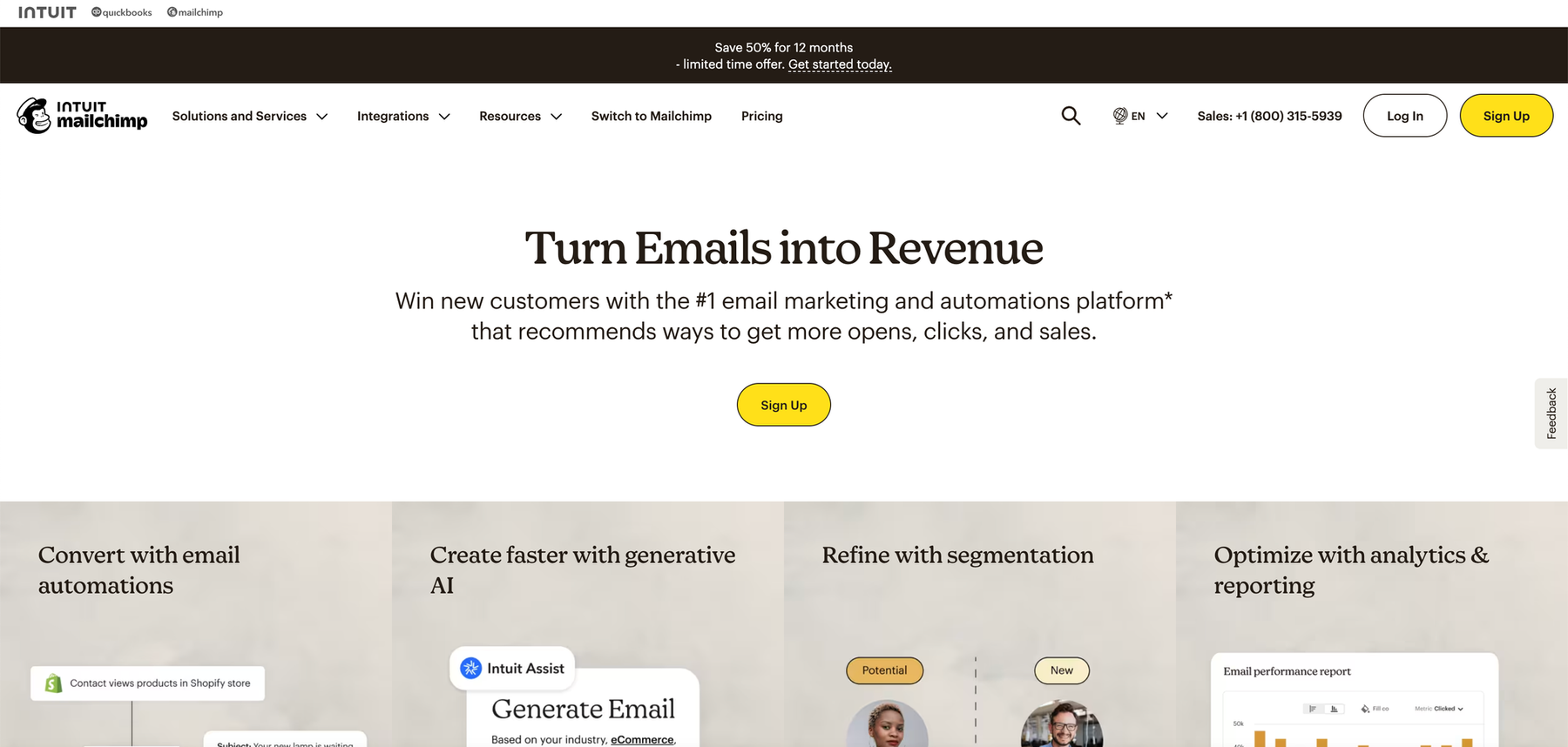
2. Mailchimp
Mailchimp is a household name in email marketing, known for its all-in-one marketing suite.
The free plan supports up to 500 contacts and 1,000 email sends per month and comes with pre-designed templates, a drag-and-drop email editor, and basic automation workflows.
Beyond email, Mailchimp integrates with social media, SMS, and website management tools, providing a comprehensive platform for growing businesses. It’s ideal for those starting out, offering audience segmentation and analytics to refine campaigns over time.
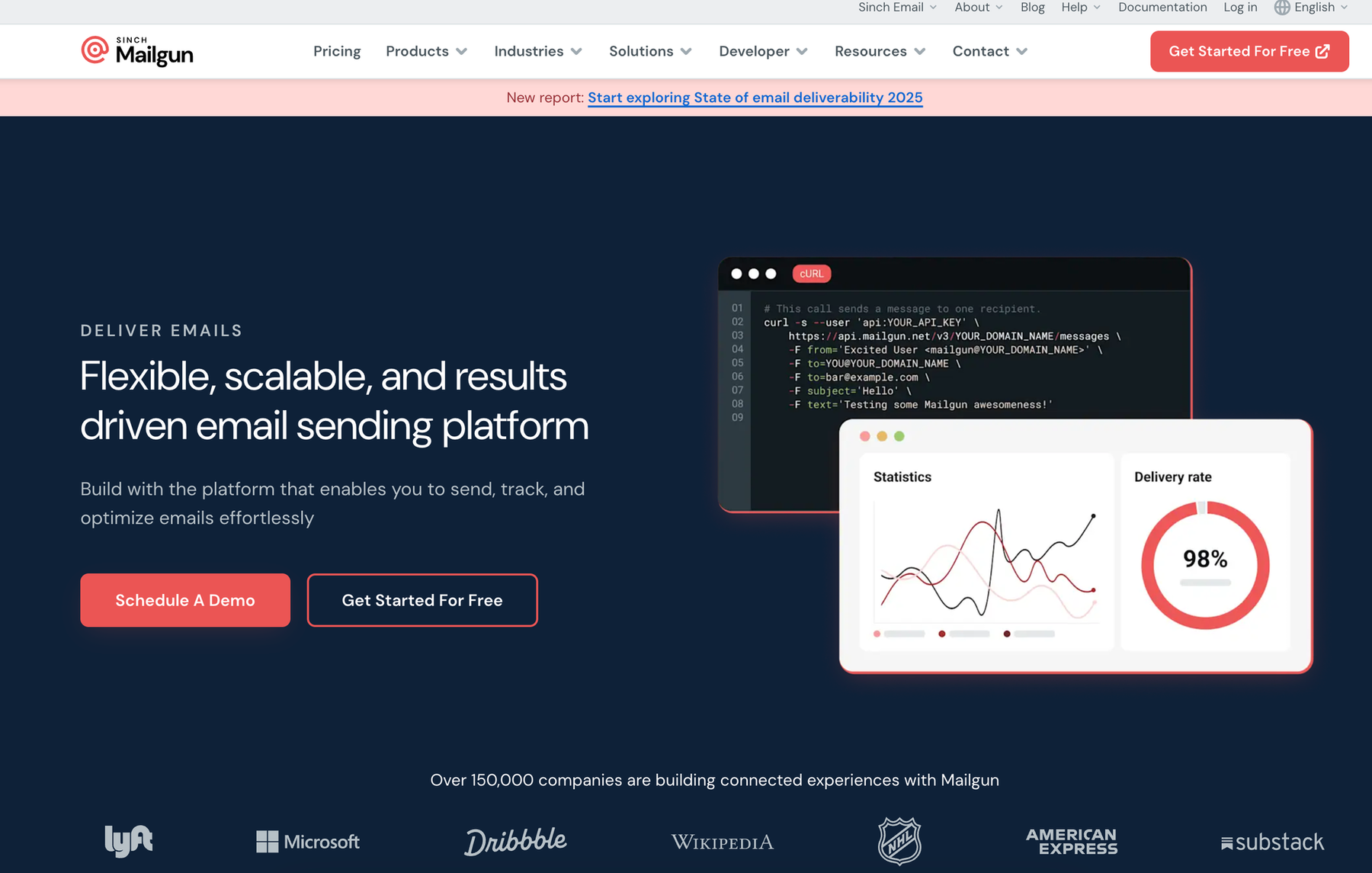
3. Mailgun
Mailgun is a developer-focused platform with an API-first approach to sending and receiving emails.
Its free tier includes 5,000 emails per month for the first three months, along with robust email validation to reduce bounce rates and ensure deliverability.
Mailgun is particularly suitable for SaaS businesses and tech-driven companies that want to integrate email services directly into their applications or workflows. Additional features like webhook tracking and email parsing make it a favorite among developers.
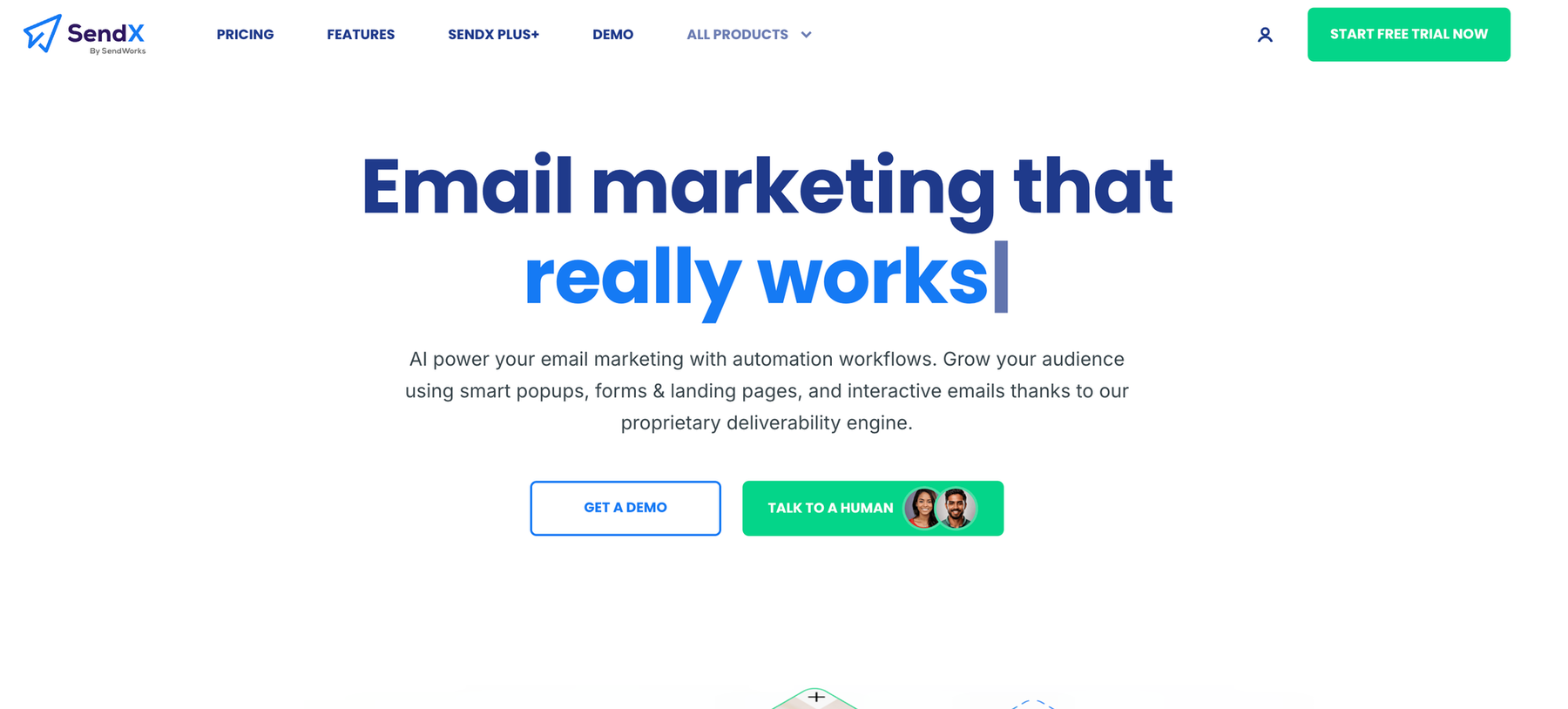
4. SendX
SendX offers a beginner-friendly approach to email marketing, combining simplicity with powerful tools like drag-and-drop editors, automation, and A/B testing.
It supports email scheduling, smart audience segmentation, and engagement tracking to help businesses optimize their campaigns. While SendX caters to small businesses, its ease of use makes it equally appealing to solopreneurs or marketers looking for efficient tools to boost engagement.
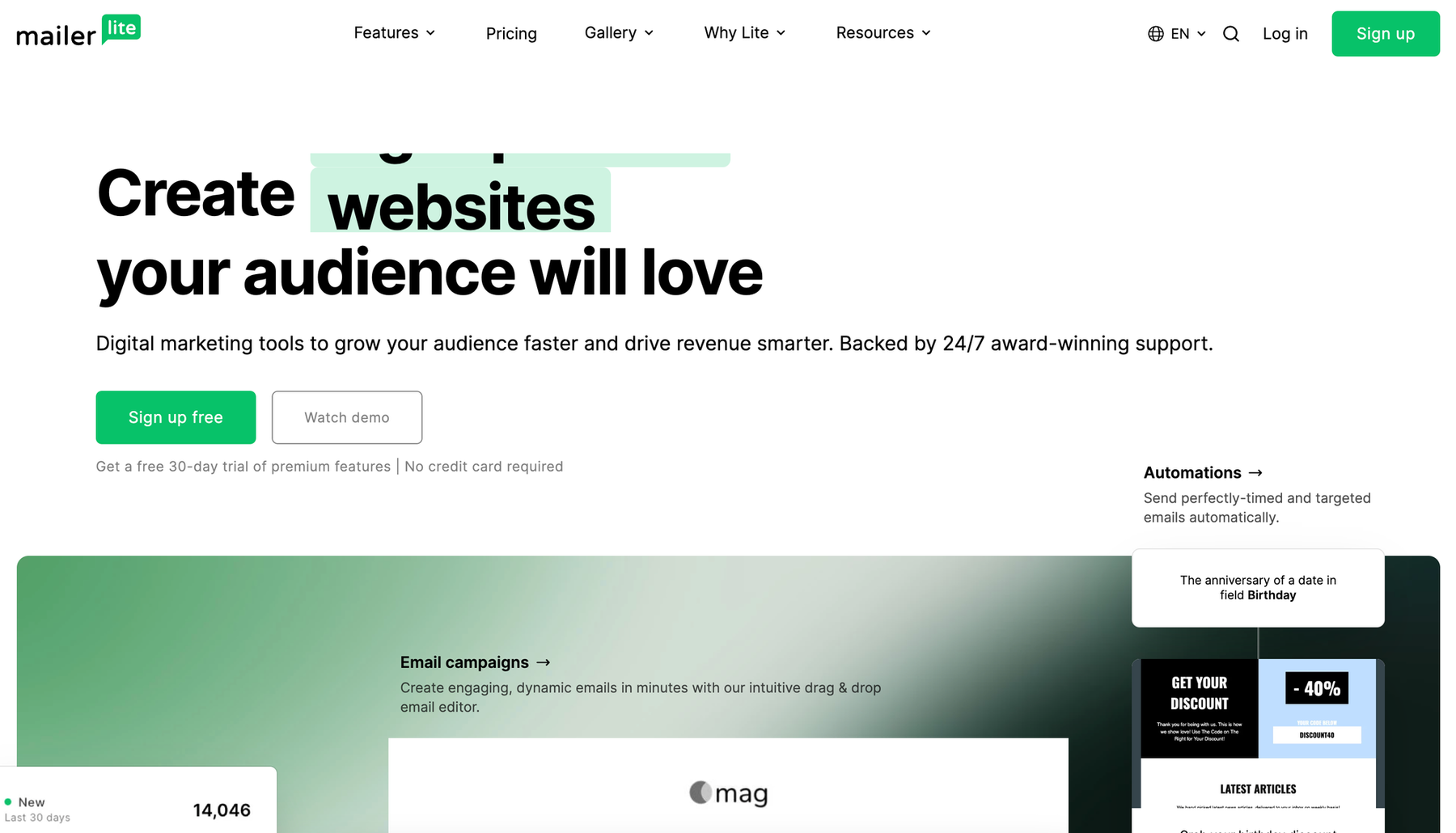
5. MailerLite
MailerLite stands out for its intuitive interface, offering features like automation workflows, pop-up forms, and audience segmentation.
The free plan allows users to send 12,000 emails monthly to up to 1,000 subscribers, making it ideal for small-to-medium-sized businesses.
MailerLite’s pre-designed templates and drag-and-drop editor help create stunning campaigns quickly, while its landing page builder ensures seamless lead capture and conversion optimization.
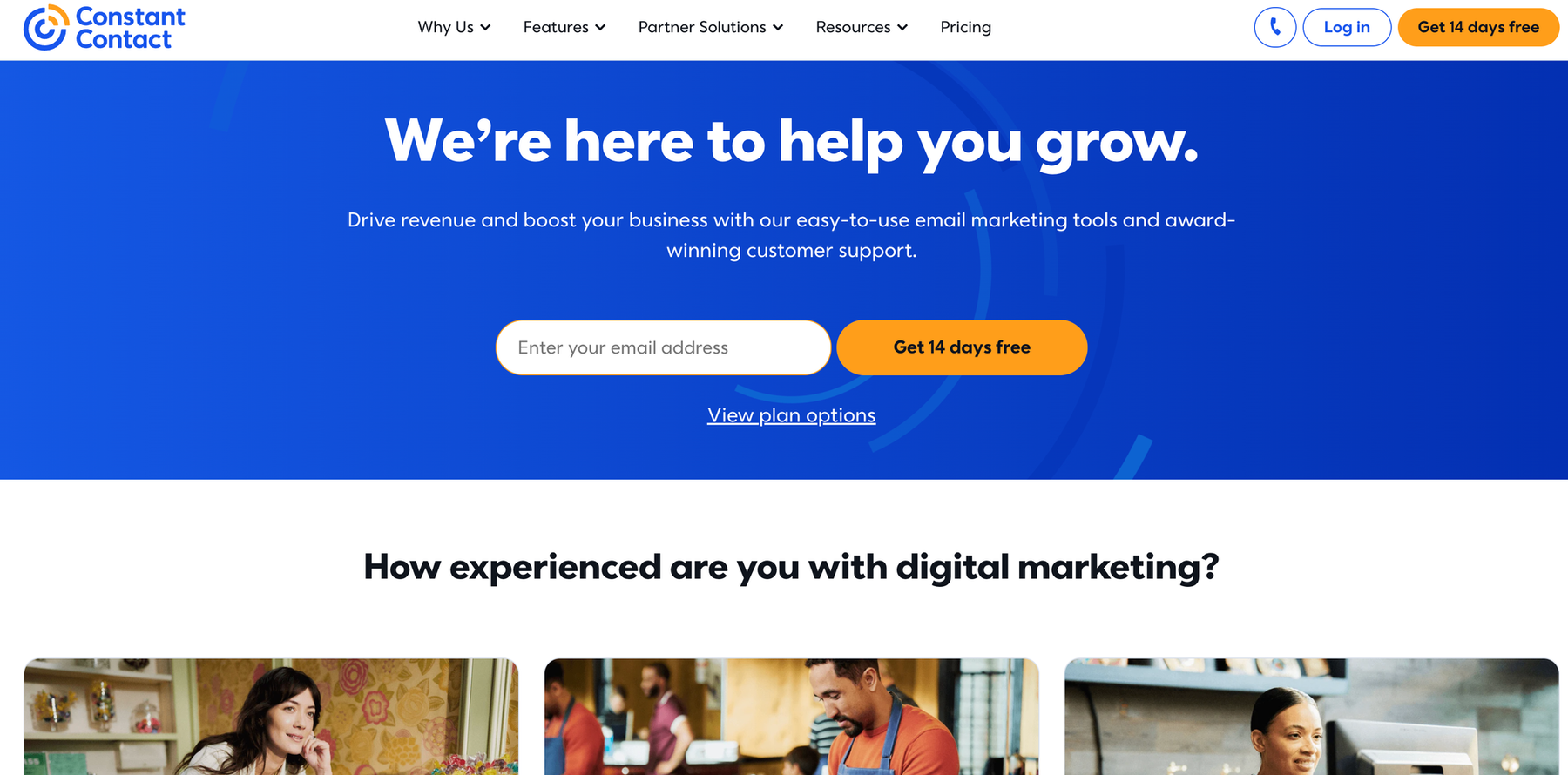
6. Constant Contact
Constant Contact is a reliable and feature-rich email marketing solution boasting a 97% deliverability rate.
Although primarily known for email, it also offers tools for managing ecommerce stores, social media ads, and surveys. While the free tier is more limited than some competitors, its wide range of templates, analytics, and customer support ensures campaigns are professional and effective.
It’s particularly valuable for businesses with a mix of marketing channels.

7. HubSpot
HubSpot’s email marketing capabilities are deeply integrated with its CRM platform, making it a standout option for lead generation and nurturing. The free plan includes 2,000 email sends monthly, with access to its CRM, where you can manage contact lists, track customer interactions, and personalize emails.
HubSpot’s templates, automation workflows, and performance analytics make it an excellent tool for aligning marketing and sales strategies.
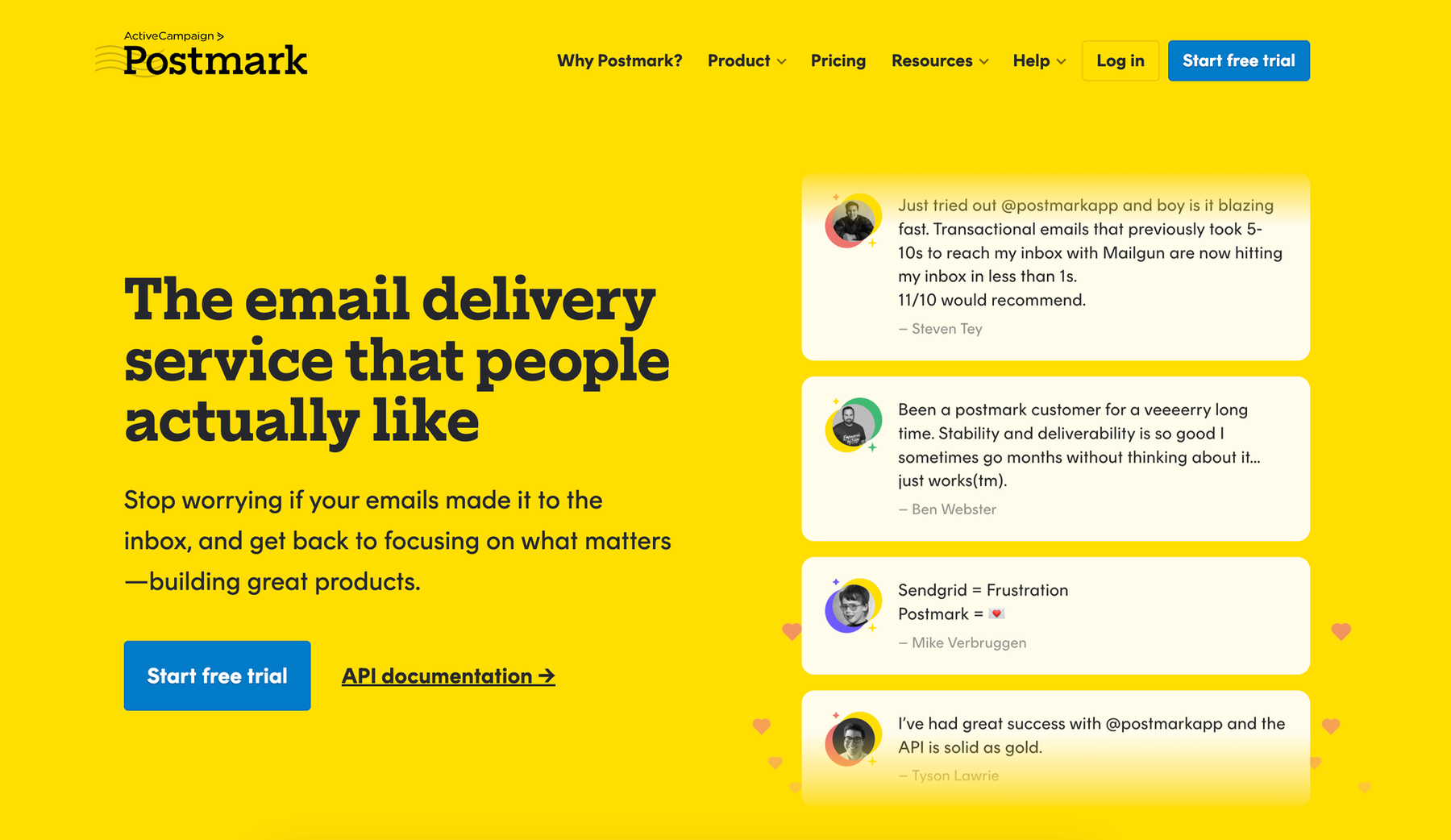
8. Postmark
Postmark specializes in transactional emails, delivering messages like receipts, account updates, and password resets with speed and accuracy.
Its emphasis on fast delivery and high engagement ensures that emails land in the inbox within seconds.
Postmark also offers analytics and supports API or SMTP integration, making it a go-to choice for developers and companies relying on timely, transactional communication.
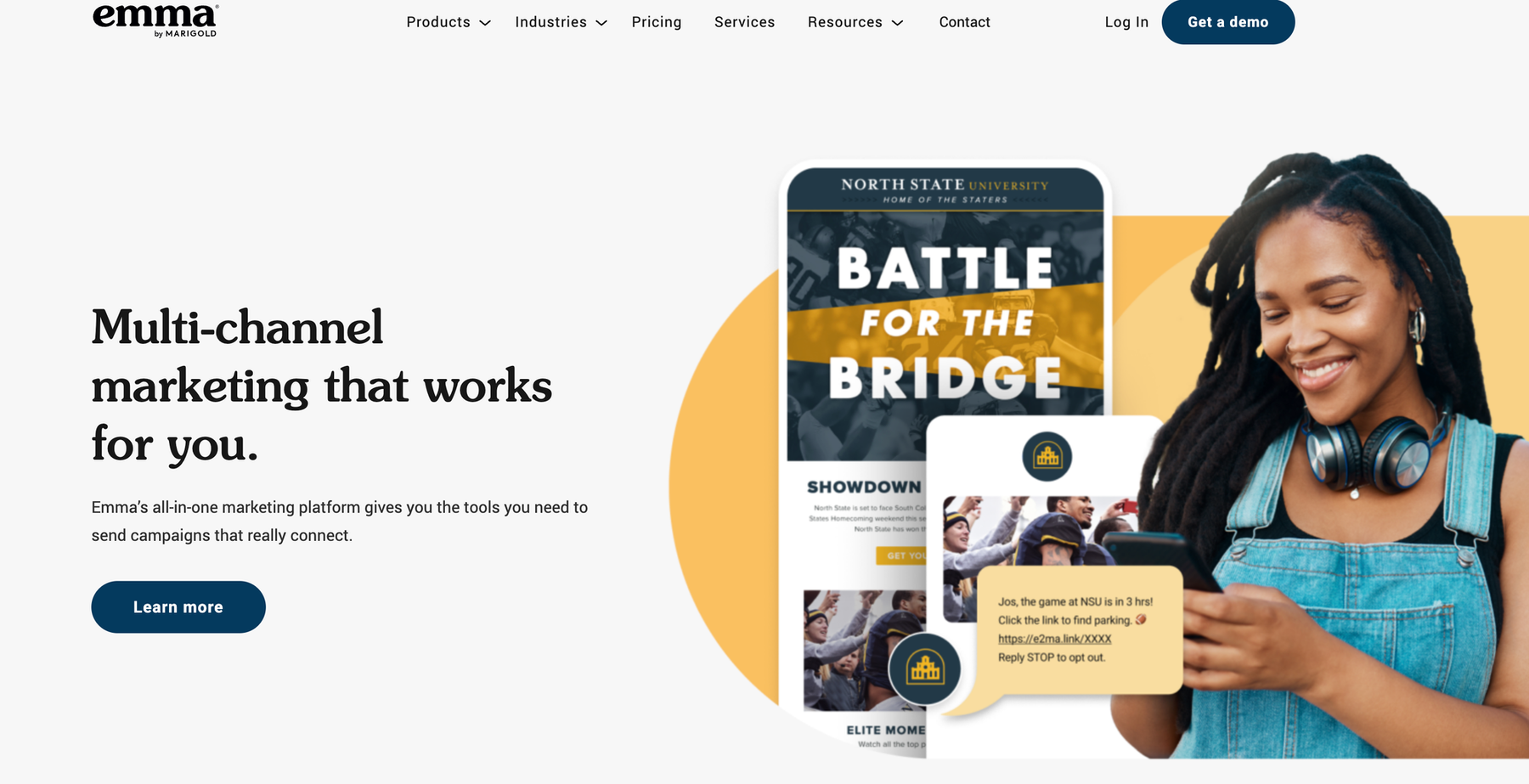
9 MyEmma
MyEmma provides additional flexibility through its collaboration tools, allowing teams to work together seamlessly on campaign designs and strategies.
The platform integrates with popular CRMs and e-commerce platforms, enabling businesses to sync their customer data effortlessly.
Its automation features are particularly impressive, helping users set up complex workflows such as welcome series, birthday emails, or re-engagement campaigns with minimal effort.
Also, MyEmma’s analytics offer deep insights into campaign performance, including open rates, click-through rates, and engagement trends, empowering businesses to make data-driven decisions.
Their support team is also a valuable resource, offering expert guidance to help users maximize the tool’s potential. These features make MyEmma an excellent choice for businesses aiming to elevate their email marketing game.

10. Zoho Campaigns
Zoho Campaigns integrates seamlessly with the broader Zoho ecosystem, offering businesses an all-encompassing suite of tools.
Its email marketing platform features customizable templates, landing page builders, and detailed performance tracking.
Zoho’s free plan allows businesses to send 6,000 emails monthly to up to 2,000 contacts, making it a versatile option for those already leveraging Zoho’s CRM or other tools.
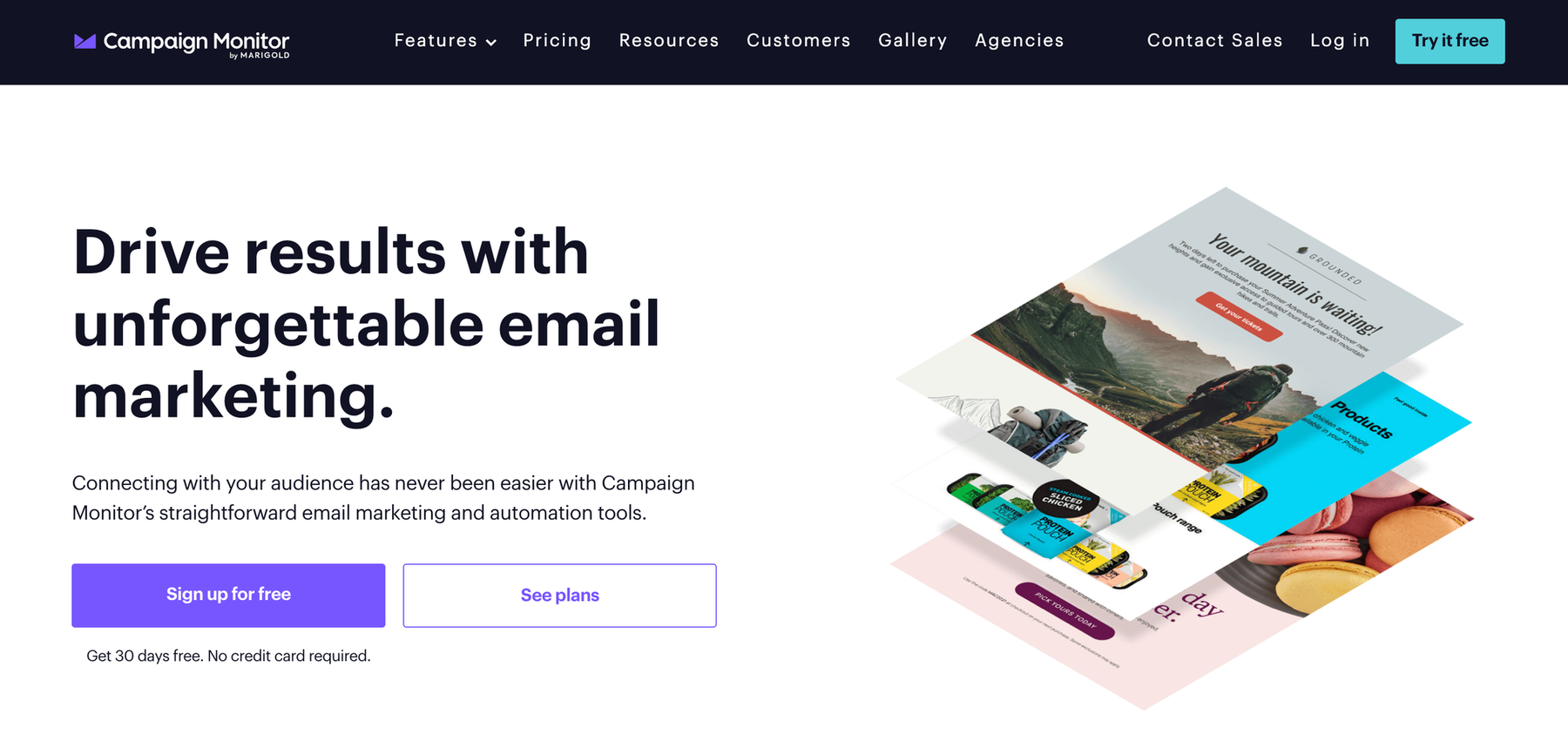
11. Campaign Monitor
Campaign Monitor emphasizes design and usability, providing professional-grade templates and tools for personalized automation.
Its free tier is great for startups and small teams, offering basic analytics and CRM integration for effective customer engagement.
Businesses can leverage its straightforward interface to create visually stunning campaigns without technical expertise.
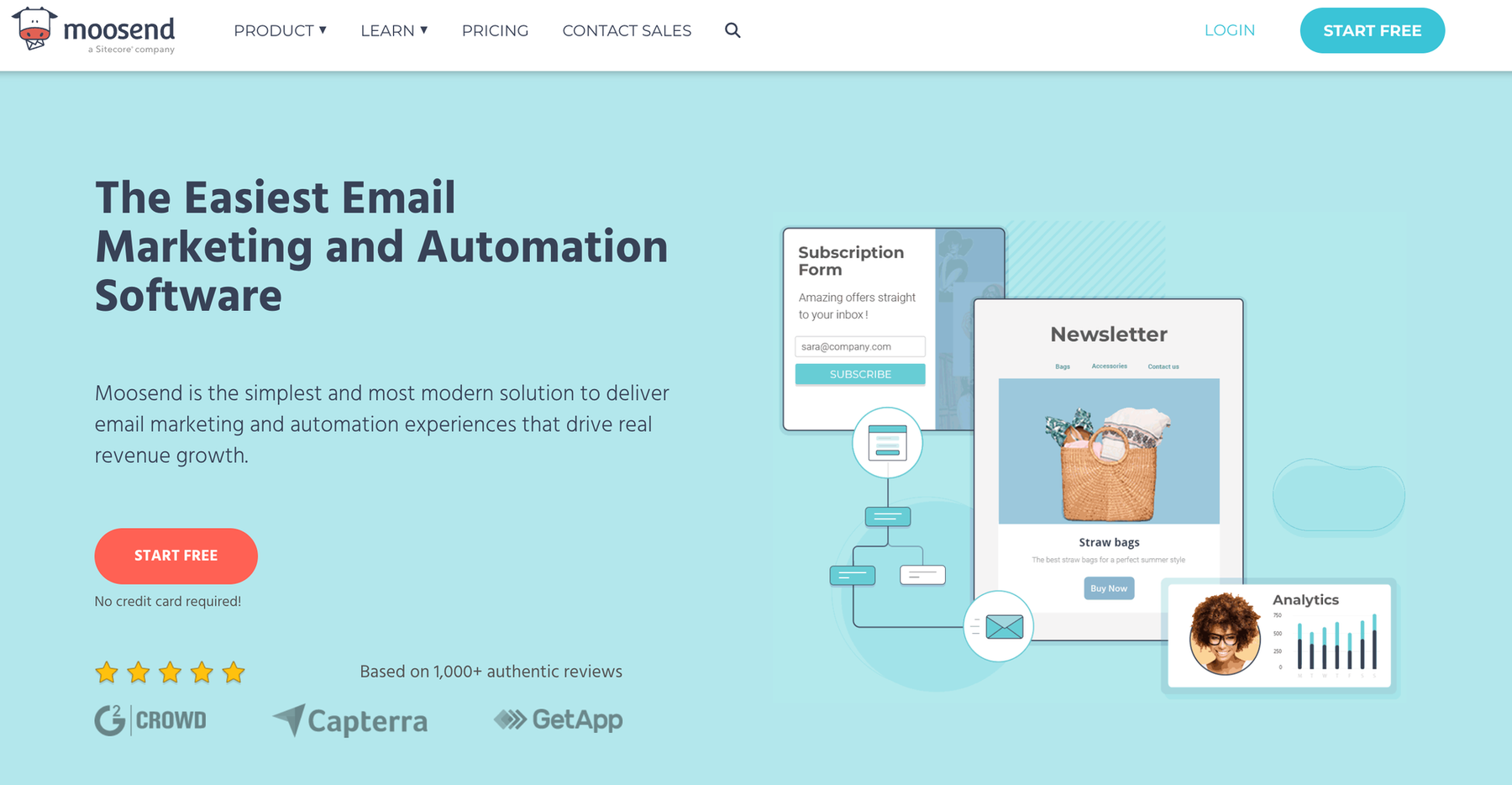
12. Moosend
Moosend caters to e-commerce businesses with advanced features like cart recovery automation, dynamic segmentation, and behavioral tracking.
It allows businesses to create highly targeted campaigns that drive conversions. Moosend’s free plan supports up to 1,000 subscribers, making it a practical choice for small online stores or marketers seeking to personalize their outreach.
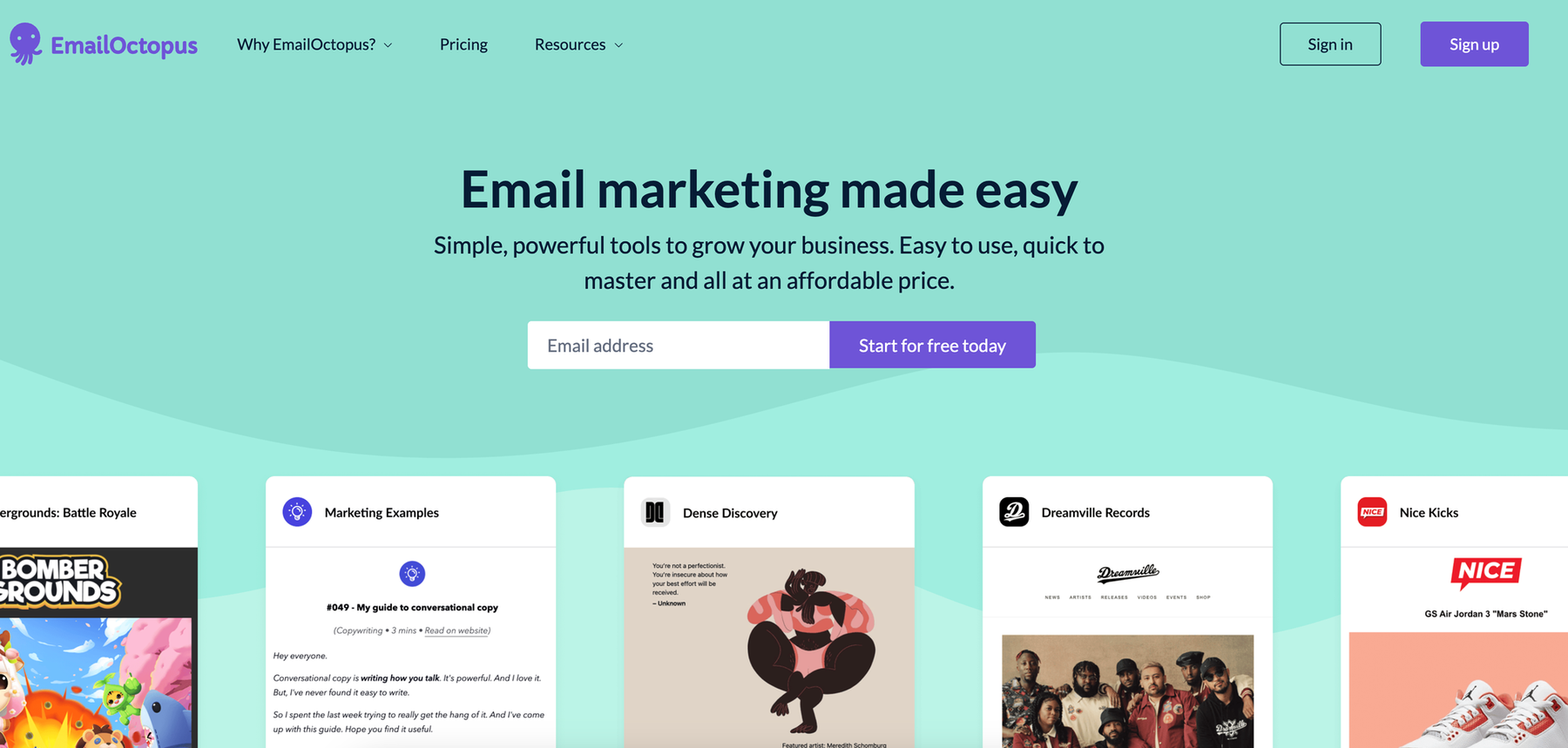
13. EmailOctopus
EmailOctopus is a lightweight platform that simplifies email marketing for small and medium-sized businesses.
Its free plan covers up to 2,500 subscribers and 10,000 emails monthly, making it one of the most generous options for growing businesses.
Its minimalistic interface and essential automation features keep costs low while ensuring efficient campaigns.
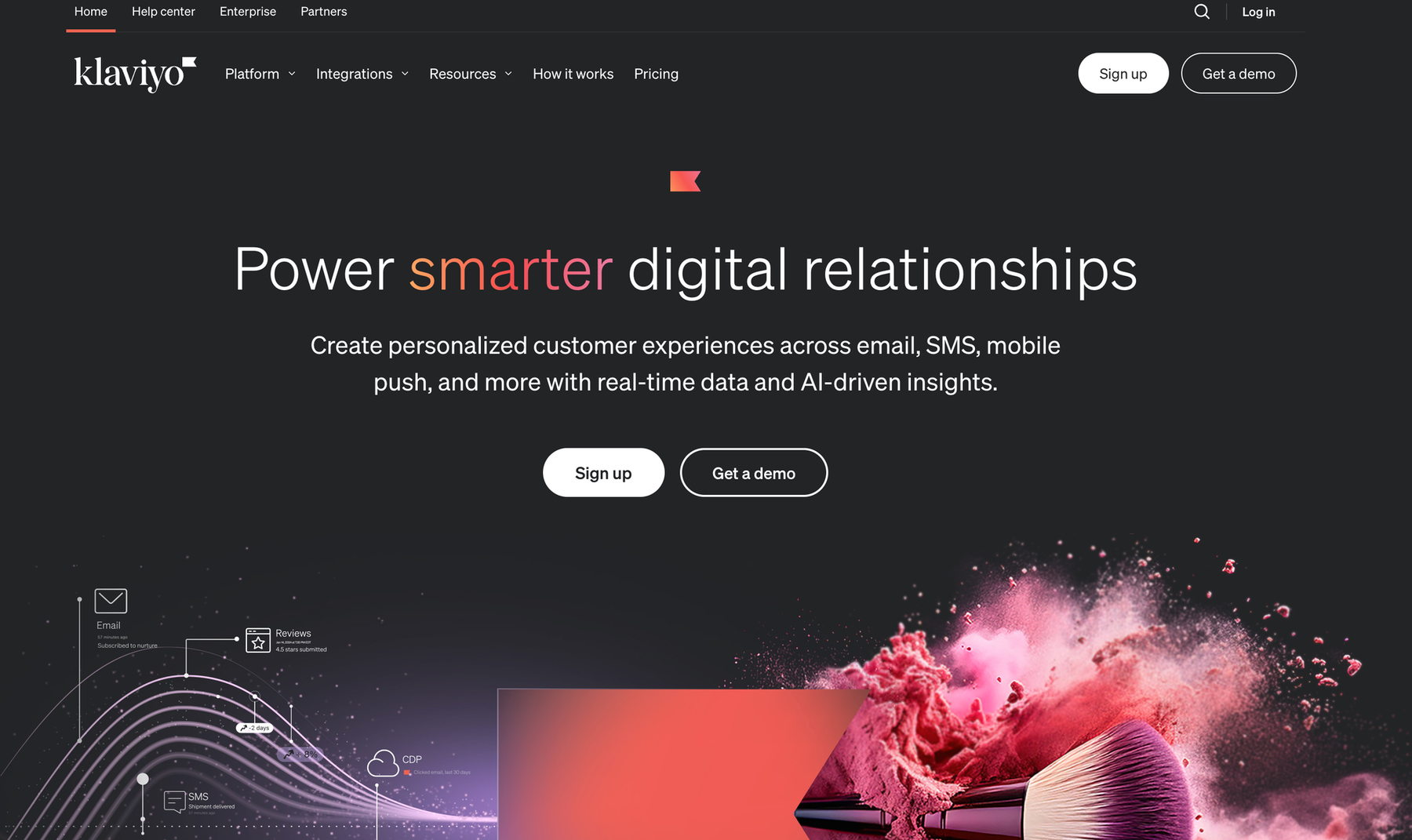
14. Klaviyo
Klaviyo is an email marketing tool made for online stores, offering a robust set of features to help businesses thrive in the digital age.
It seamlessly integrates with popular e-commerce platforms like Shopify, BigCommerce, and WooCommerce, ensuring businesses can leverage their customer data effectively. Through Klaviyo, businesses can create personalized and impactful marketing messages tailored to specific customer behaviors and preferences.
Some of its standout features include advanced audience segmentation, which allows businesses to group their customers based on demographics, purchase history, or browsing habits, ensuring highly targeted campaigns. Their abandoned cart recovery feature is particularly effective, automatically reaching out to customers who left items in their carts to encourage them to complete their purchases.
Detailed analytics and reporting allow businesses to continuously measure the success of their email and SMS campaigns, providing actionable insights to refine strategies.
The platform even enables multi-channel outreach, combining email and SMS for cohesive customer communication.
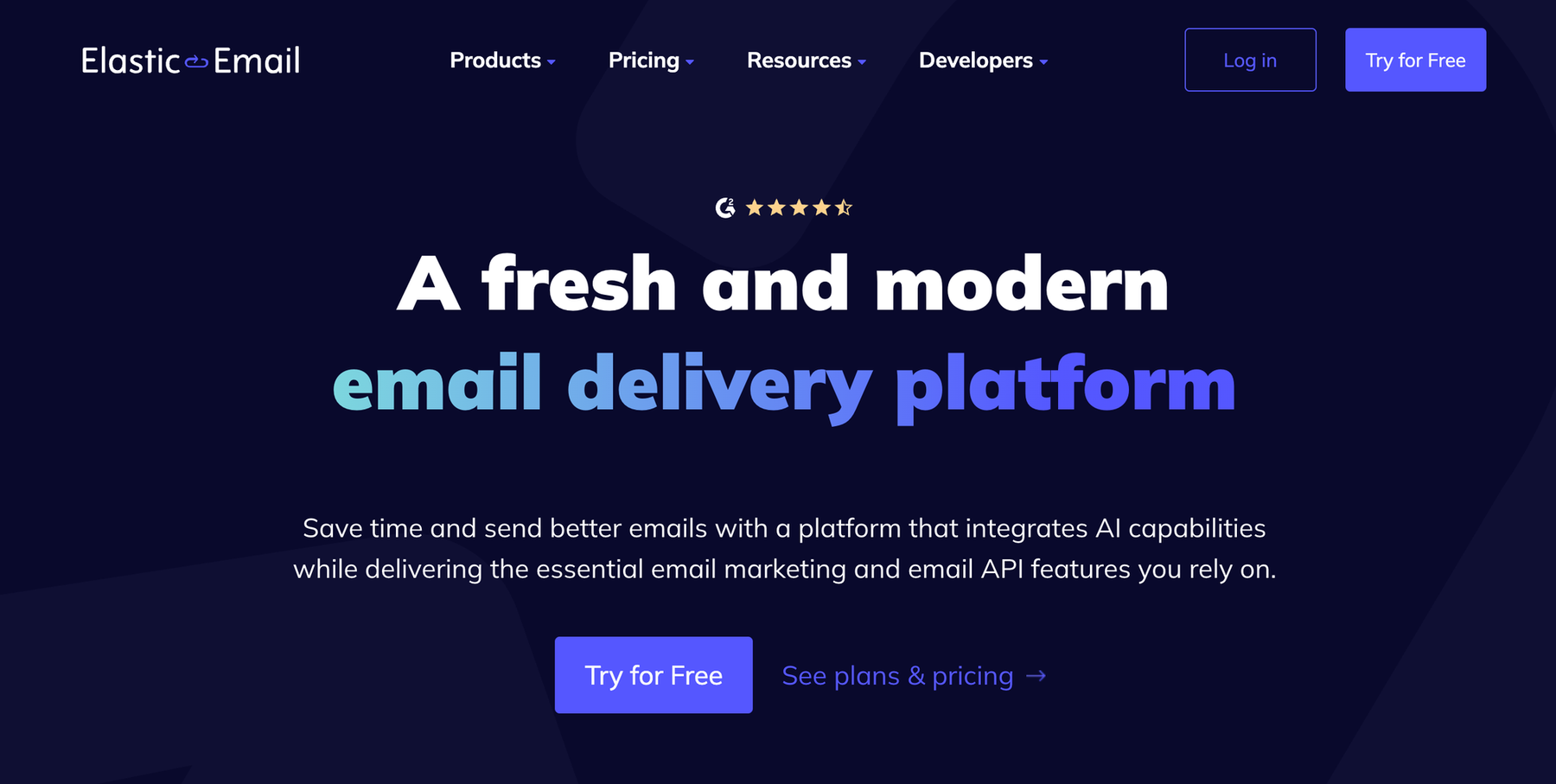
15. Elastic Email
Elastic Email focuses on scalability for high-volume senders, offering API-driven solutions for developers and marketers alike.
Its free plan supports up to 100 emails daily, making it a good choice for testing campaigns or managing small-scale outreach.
Elastic Email’s real-time tracking and extensive templates help businesses scale their campaigns efficiently.
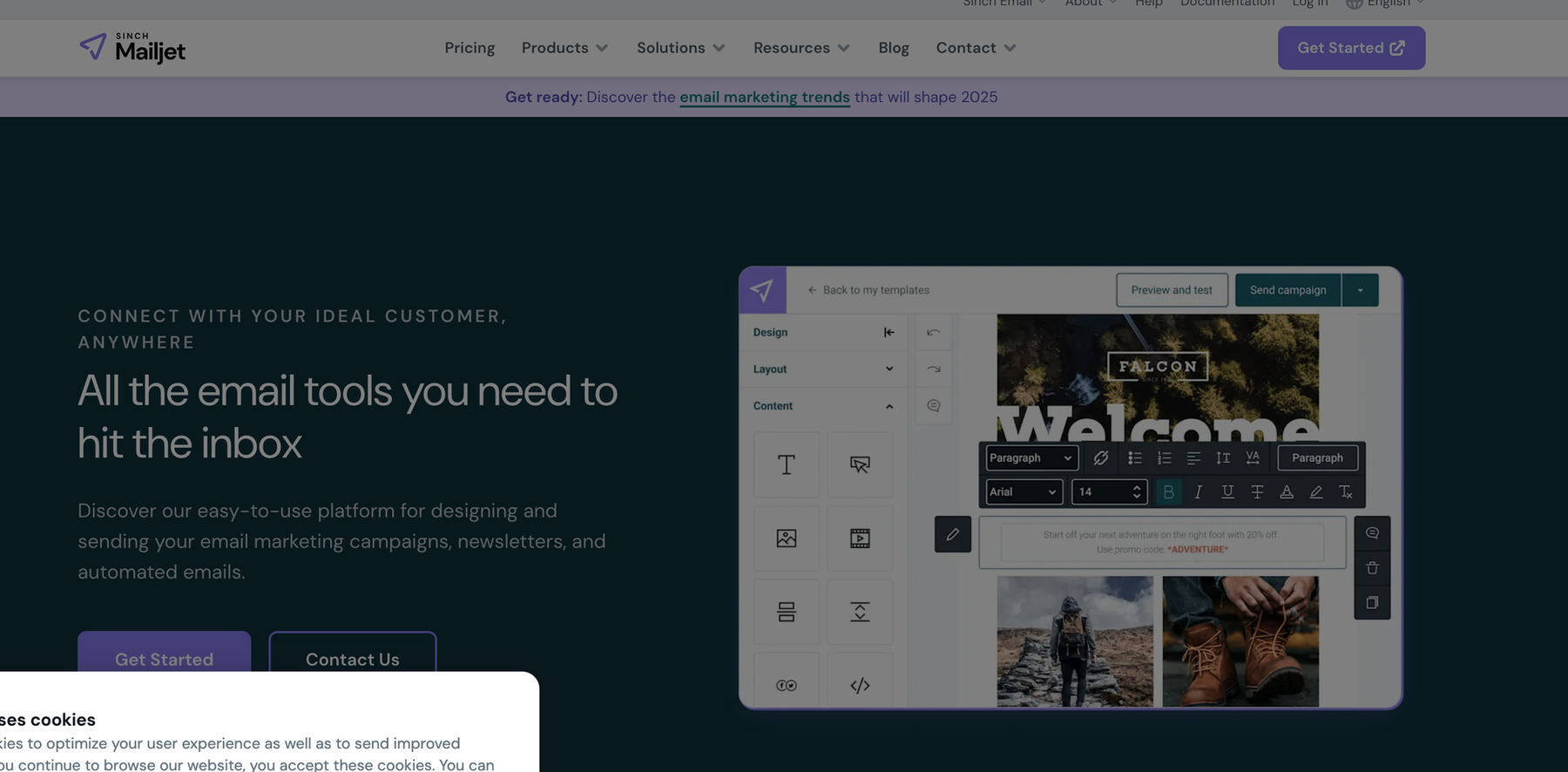
16. Mailjet
Mailjet blends marketing and transactional email capabilities into one platform.
Its API tools make it developer-friendly, while its pre-designed templates and tracking features cater to marketers.
Mailjet’s free plan includes 6,000 emails per month, making it accessible for businesses and teams with diverse needs.
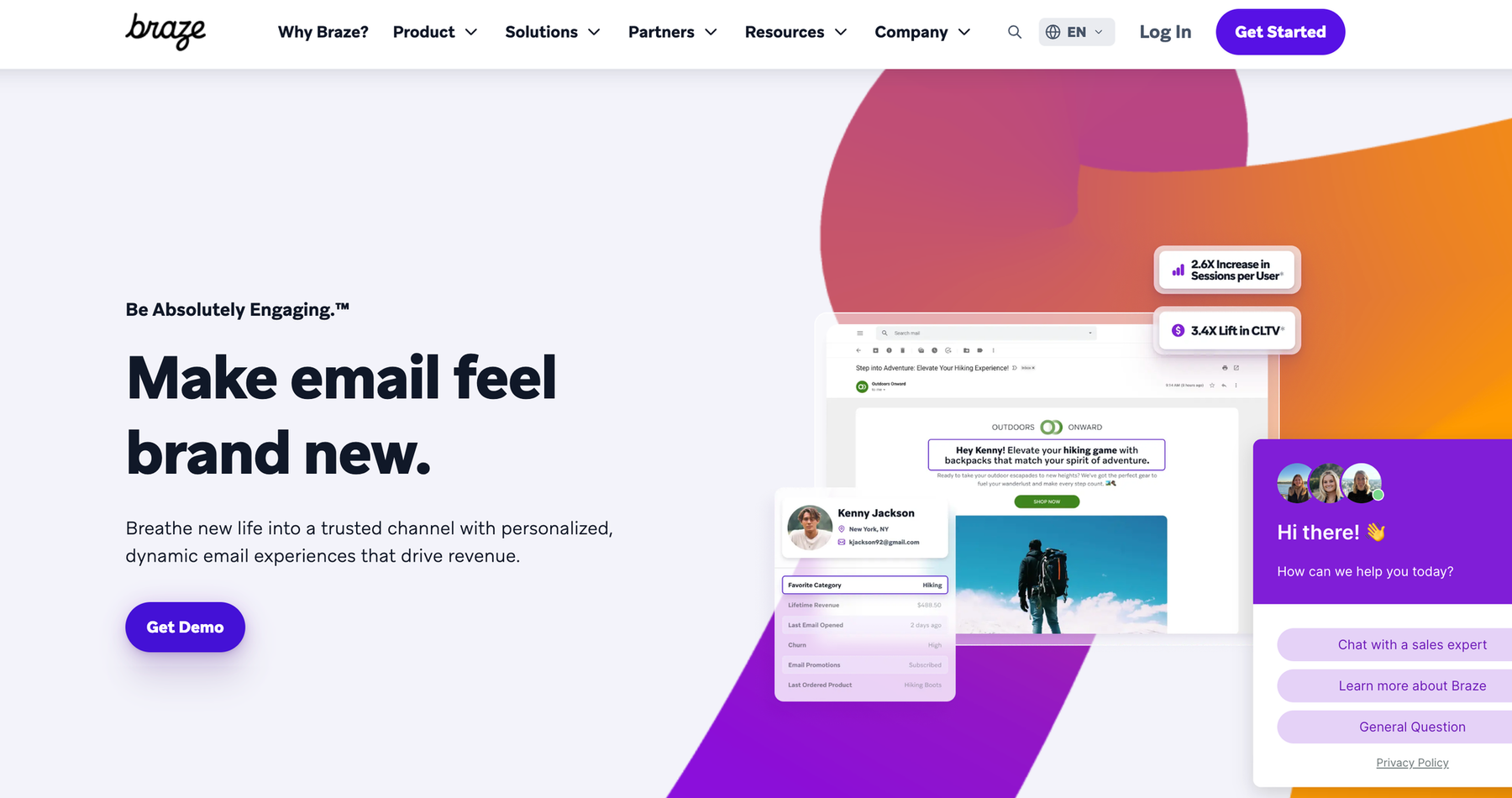
17. Braze
Braze is a platform that helps businesses connect with their customers across multiple channels, enabling seamless and effective communication.
It focuses on creating highly personalized messages through email, SMS, push notifications, and in-app messages, ensuring that businesses can reach their audience wherever they are.
With Braze, companies can send customized campaigns in real time, leveraging data from customer actions, preferences, and behavior to deliver relevant and meaningful interactions.
The platform also simplifies email marketing by providing tools to create tailored emails that align with each customer's specific stage in the buying journey. This ensures that messaging is timely and contextually appropriate, which can significantly enhance conversion rates.
Braze integrates seamlessly with tools like analytics platforms, CRM systems, and data warehouses, allowing businesses to streamline their workflows and access insights that refine their strategies.

18. Yotpo
Yotpo is a marketing platform designed to make email marketing more effective by leveraging customer reviews, loyalty programs, and user-generated content to drive engagement and sales.
It integrates seamlessly with popular e-commerce platforms such as Shopify, BigCommerce, and Magento, allowing businesses to easily collect, display, and utilize customer feedback. Yotpo’s emails are tailored to include elements like product reviews, customer testimonials, and user-submitted photos, which help build trust, improve credibility, and encourage potential buyers to make purchases.
Yotpo excels in personalization and segmentation, allowing businesses to target specific customer groups with promotions and recommendations based on past behavior and preferences.
With the capability to automate targeted campaigns, businesses can maintain consistent communication with their audience and re-engage inactive customers effectively.
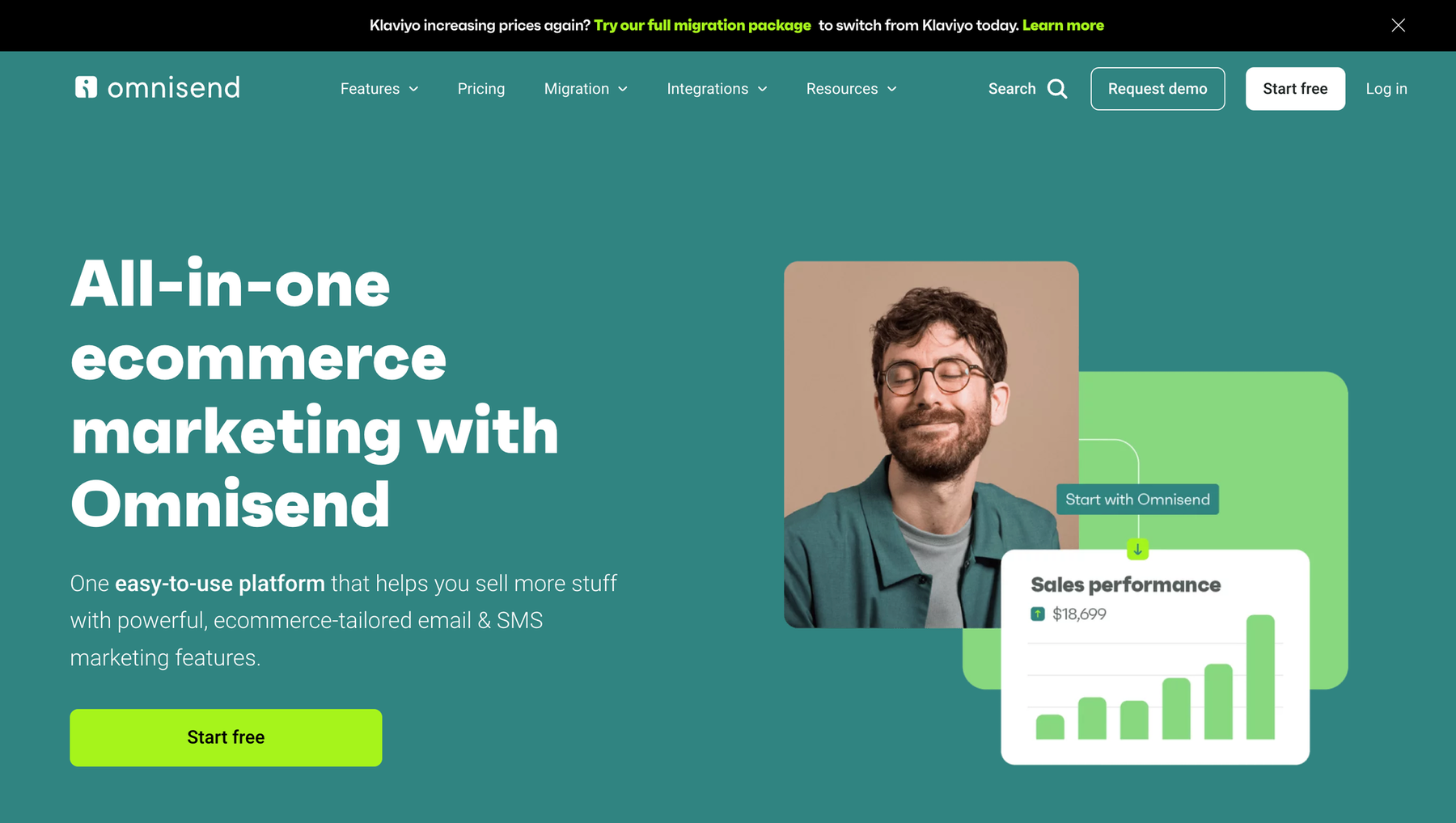
19. Omnisend
Omnisend is an all-in-one marketing tool designed specifically for e-commerce businesses.
It lets you manage email campaigns, SMS, and push notifications from one simple platform. With ready-made automation options like cart reminders, welcome messages, and order updates, it makes marketing easier and more effective.
Omnisend also connects smoothly with popular e-commerce platforms like Shopify and BigCommerce, helping store owners sync customer data effortlessly. Its user-friendly design and flexible pricing make it a great choice for businesses looking to grow.
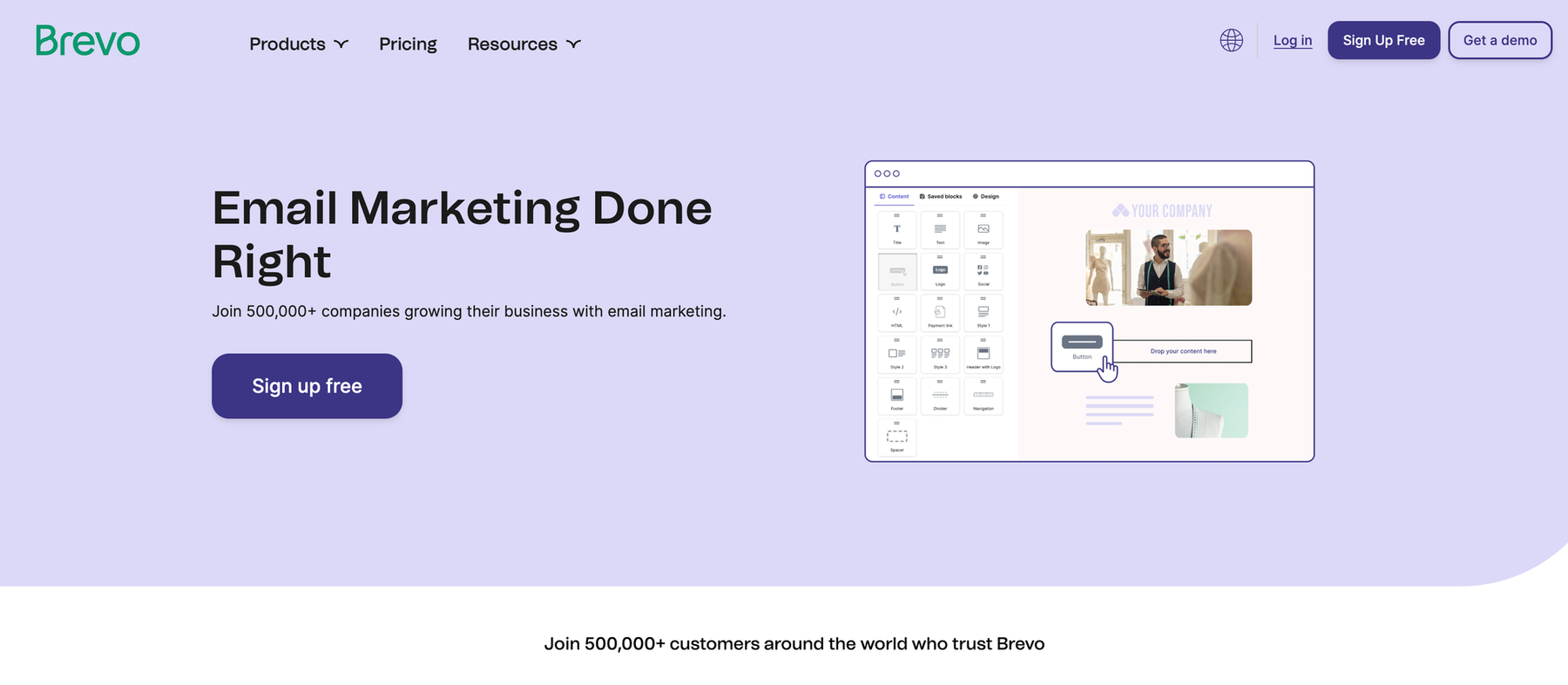
20. Brevo
Brevo (formerly SendinBlue) is an easy-to-use email marketing platform designed for businesses of all sizes.
It features a simple drag-and-drop email editor, automation tools, and options to target your audience effectively. Some of its key features include sending transactional emails, running SMS campaigns, and managing customer relationships with built-in CRM tools.
Brevo also provides real-time insights to track results and A/B testing to improve your campaigns. With a free plan covering basic features, it’s an affordable and reliable option, especially for startups and small businesses.
Must-Have Features in Email Software
Choosing the appropriate email software can significantly impact the success of your outreach campaigns. To ensure success, prioritize these essential features:
1. Personalization That Connects
A personalized touch can dramatically increase engagement. Look for software with merge tags and capabilities to tailor emails based on recipient details.
This customization makes your outreach feel more genuine, helping your message stand out in crowded inboxes and improving response rates.
2. Integrated Email Verification
Built-in email verification tools identify valid and active email addresses, reducing bounce rates and protecting your sender reputation.
This feature also improves overall deliverability, ensuring your emails consistently land in recipients’ inboxes.
3. Solid Automation Features
Automation is key to managing large-scale outreach efforts efficiently. Features like scheduled follow-ups, auto-responses, and detailed engagement tracking allow you to maintain consistency while saving valuable time.
The ability to automate workflows also helps you focus on crafting compelling messages rather than manual management.
4. Deliverability Optimization Tools
Effective email software includes tools to enhance deliverability, such as email ramp-up strategies, custom tracking domains, and spam testing.
These features ensure your emails bypass spam filters and reach your recipient's primary inbox.
5. Sender Account Rotation
For high-volume campaigns, the ability to rotate between multiple sender accounts helps avoid spam triggers.
This feature supports scalability, allowing you to send larger volumes of emails without sacrificing deliverability or damaging your domain reputation.
7. Pre-Campaign Sequence Scoring
Sequence scoring evaluates your campaign setup, email templates, and overall workflow before launch.
By identifying potential weak spots, this feature enables you to optimize campaigns for better performance and maximize success rates.
Wrap-Up
Email marketing continues to prove its value as a reliable and cost-effective strategy for building customer relationships, driving engagement, and achieving growth.
From the simplicity of a newsletter to the refinement of automated workflows and analytics, modern tools empower businesses of all sizes to create impactful campaigns without breaking the bank.
Choosing the right email marketing platform—one that aligns with your needs and budget—can transform the way you connect with your audience.
As you explore these options, focus on scalability, usability, and integration with your existing tools. With the right platform and strategy in place, email marketing can become the cornerstone of your digital communication, helping you drive long-term success in a competitive marketplace.


